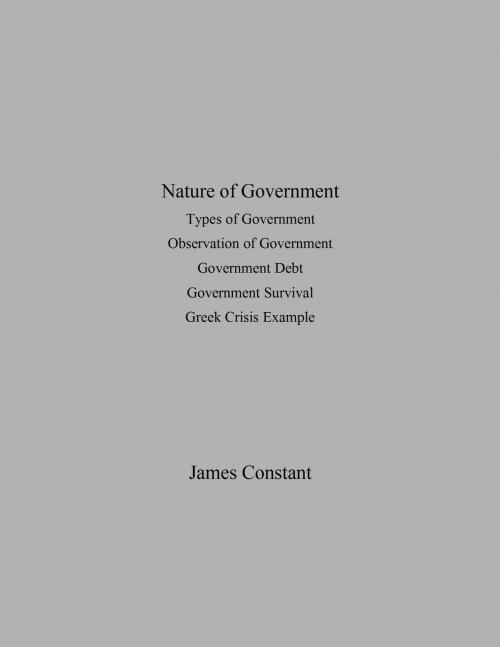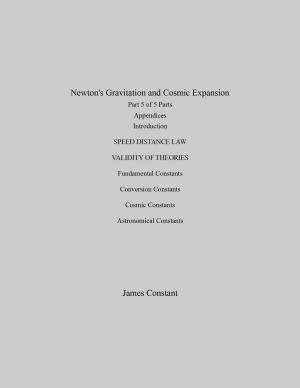| Author: | James Constant | ISBN: | 9781311132802 |
| Publisher: | James Constant | Publication: | August 18, 2015 |
| Imprint: | Smashwords Edition | Language: | English |
| Author: | James Constant |
| ISBN: | 9781311132802 |
| Publisher: | James Constant |
| Publication: | August 18, 2015 |
| Imprint: | Smashwords Edition |
| Language: | English |
This book looks at the types of government observed and the role of debt in the survival of government. The Greek crisis provides an example of peacetime debt not strategic interest being the key concern. The lesson from the foregoing discussion is that the natures of all types of government is authoritarian and that a government’s interest to preserve its elites and politicians is different from people’s interests to continue receiving public benefits. Few countries have what might be called a representative government.There are about 195 countries in the world. Of these, there are 24 full democracies, 52 flawed democracies, 39 hybrid regimes, and 52 authoritarian regimes. Nothing is perfect, not even full democracy. Governments compete externally and internally for survival and it is for this reason almost all countries incur debt, usually expressed in terms of percentage of Gross Domestic Product (GDP) or debt per capita.Of the 24 full democracies 12 are members of the EU.Because developed states cannot balance their budgets against the natural forces of economic globalization, central banks are left printing more money to keep states alive. In effect, the role of fiat money is the creative downsizing or destruction of developed states (US, JK, EU) and the transfer of power and wealth to the newly emerging undeveloped states (BRICS). To survive, a democracy must obtain people’s votes by promising them welfare benefits which government pays from taxes and bond income. In time, external wars and/or ever increasing people’s demands for salaries, pensions and welfare benefits exceed availability of government resources and forces financing wars and public people benefits through assumption of debt.
This book looks at the types of government observed and the role of debt in the survival of government. The Greek crisis provides an example of peacetime debt not strategic interest being the key concern. The lesson from the foregoing discussion is that the natures of all types of government is authoritarian and that a government’s interest to preserve its elites and politicians is different from people’s interests to continue receiving public benefits. Few countries have what might be called a representative government.There are about 195 countries in the world. Of these, there are 24 full democracies, 52 flawed democracies, 39 hybrid regimes, and 52 authoritarian regimes. Nothing is perfect, not even full democracy. Governments compete externally and internally for survival and it is for this reason almost all countries incur debt, usually expressed in terms of percentage of Gross Domestic Product (GDP) or debt per capita.Of the 24 full democracies 12 are members of the EU.Because developed states cannot balance their budgets against the natural forces of economic globalization, central banks are left printing more money to keep states alive. In effect, the role of fiat money is the creative downsizing or destruction of developed states (US, JK, EU) and the transfer of power and wealth to the newly emerging undeveloped states (BRICS). To survive, a democracy must obtain people’s votes by promising them welfare benefits which government pays from taxes and bond income. In time, external wars and/or ever increasing people’s demands for salaries, pensions and welfare benefits exceed availability of government resources and forces financing wars and public people benefits through assumption of debt.















